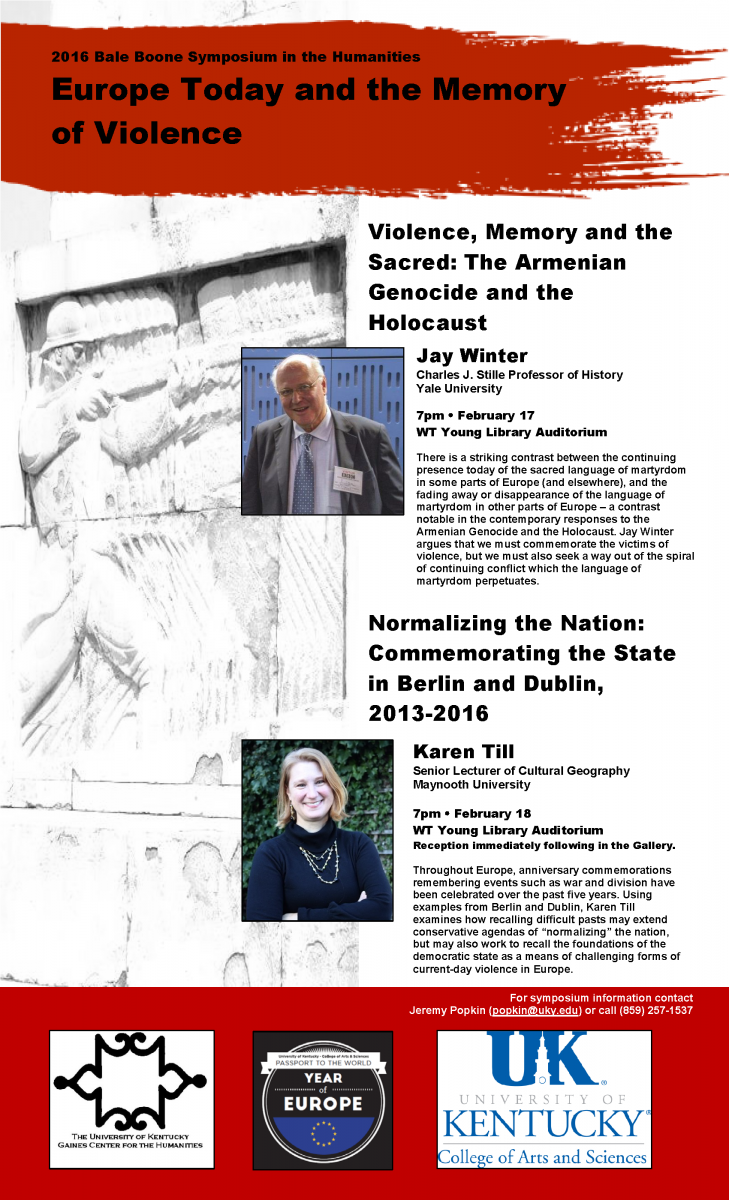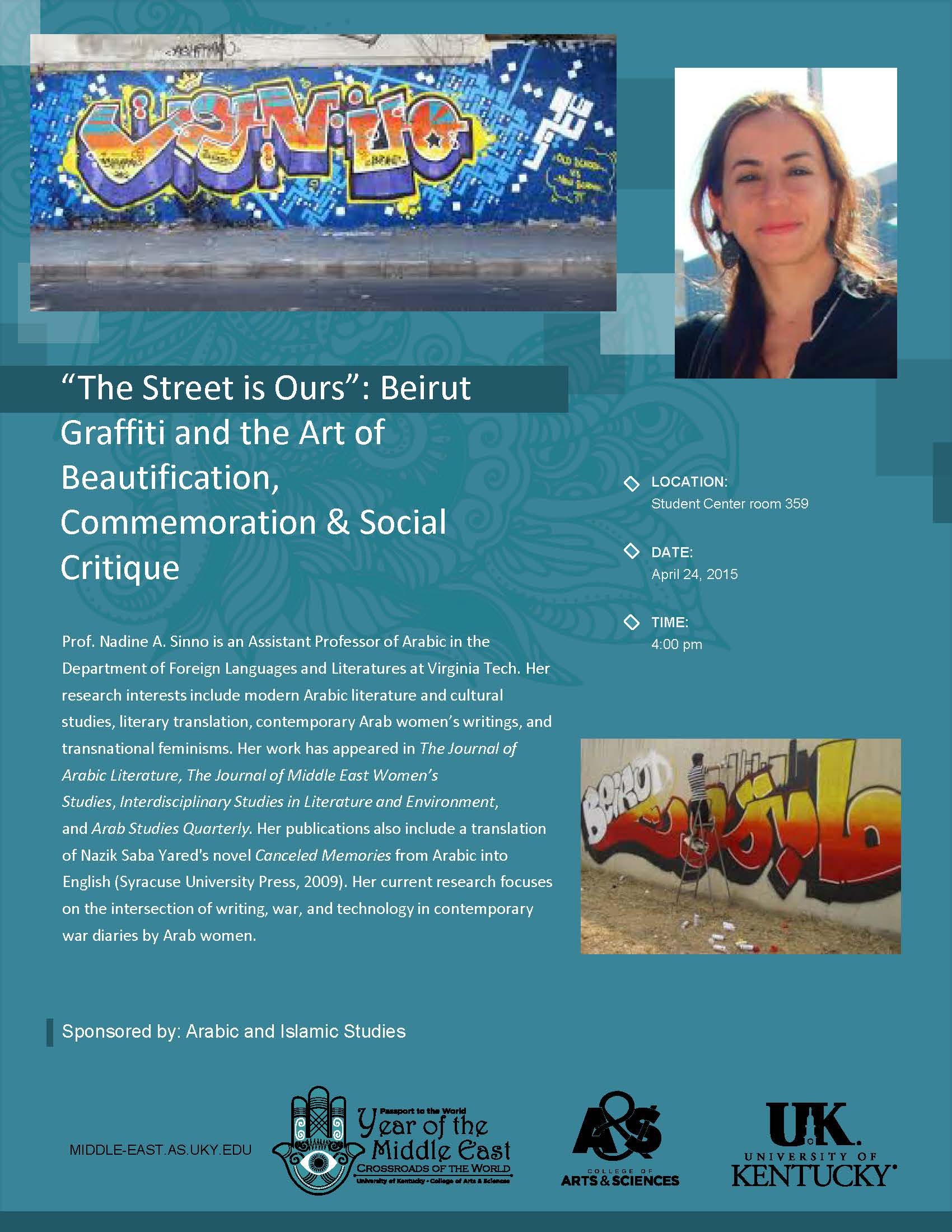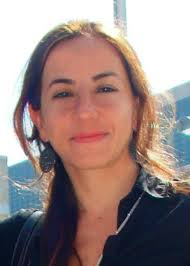Passport to the World
Interactive Discussion: "The Teatro del Barrio of Lavapiés and the Cultural Economy of Post-Crisis Madrid"
Interactive Discussion: "The Teatro del Barrio of Lavapiés and the Cultural Economy of Post-Crisis Madrid"
Bale Boone Symposium: Violence, Memory and the Sacred: The Armenian Genocide and the Holocaust
Jay M. Winter, the Charles J. Stille Professor of History at Yale University, is a specialist on World War I and its impact on the 20th century and one of the pioneers of the field of the history of memory. Winter is the author or co-author of a dozen books, including Sites of Memory, Sites of Mourning: The Great War in European Cultural History, 1914-1918: The Great War and the Shaping of the 20th Century, and Remembering War: The Great War between History and Memory in the 20th Century. He is co-director of the project on Capital Cities at War: Paris, London, Berlin 1914-1919, was co-producer, co-writer and chief historian for the PBS series “The Great War and the Shaping of the 20th Century,” which won an Emmy Award, a Peabody Award and a Producers Guild of America Award for best television documentary in 1997.
This talk focuses on a contrast between the continuing presence today of the sacred language of martyrdom in some parts of Europe (and elsewhere), and the fading away or disappearance of the language of martyrdom in other parts of Europe by looking at the two contrasting cases of the Armenian genocide and the Holocaust. While martyrdom is at the heart of how Armenians today remember the catastrophe of 1915, there has emerged since the 1940s a very different linguistic register in Jewish responses to the Holocaust, one by and large free of the language of martyrology.The implications of this distinction are far-reaching. How we think about catastrophe matters in contemporary Europe. We must commemorate the victims of violence, but we must also seek a way out of the spiral of continuing conflict which the language of martyrdom perpetuates.
For more information visit http://www.uky.edu/academy/2016BBS.

Bale Boone Symposium: Violence, Memory and the Sacred: The Armenian Genocide and the Holocaust
Jay M. Winter, the Charles J. Stille Professor of History at Yale University, is a specialist on World War I and its impact on the 20th century and one of the pioneers of the field of the history of memory. Winter is the author or co-author of a dozen books, including Sites of Memory, Sites of Mourning: The Great War in European Cultural History, 1914-1918: The Great War and the Shaping of the 20th Century, and Remembering War: The Great War between History and Memory in the 20th Century. He is co-director of the project on Capital Cities at War: Paris, London, Berlin 1914-1919, was co-producer, co-writer and chief historian for the PBS series “The Great War and the Shaping of the 20th Century,” which won an Emmy Award, a Peabody Award and a Producers Guild of America Award for best television documentary in 1997.
This talk focuses on a contrast between the continuing presence today of the sacred language of martyrdom in some parts of Europe (and elsewhere), and the fading away or disappearance of the language of martyrdom in other parts of Europe by looking at the two contrasting cases of the Armenian genocide and the Holocaust. While martyrdom is at the heart of how Armenians today remember the catastrophe of 1915, there has emerged since the 1940s a very different linguistic register in Jewish responses to the Holocaust, one by and large free of the language of martyrology.The implications of this distinction are far-reaching. How we think about catastrophe matters in contemporary Europe. We must commemorate the victims of violence, but we must also seek a way out of the spiral of continuing conflict which the language of martyrdom perpetuates.
For more information visit http://www.uky.edu/academy/2016BBS.

"The Israelite Samaritan Today: Past, Present and Looking to the Future."
Today’s Israelite Samaritans are ‘living history’, as we respect and observe our way of life and heritage. Through our sometimes difficult past, we have learned to coexist harmoniously with our neighbours, and we are a bridge for peace (gesher leshalom) between all peoples . We are the root of the Abrahamic religions in the region, including Samaritanism, Judaism, Christianity, Islam, and the Druze and Bahai faiths. Though rooted deeply in the past, we are a vibrant modern community with contemporary enterprises and interests. In March 1919 there were only 141 individuals, in Nablus and Jaffa. By September 2014, the Israelite Samaritan Community numbered 770 souls, divided into four households, all in the Holy Land. This talk will explore the past, present, and future of the Israelite Samaritan people.
Benny recently published "The Israelite Samaritan Version of the Torah: First English Translation Compared with the Masoretic Version" with Eerdmans Publishing.
"The Israelite Samaritan Today: Past, Present and Looking to the Future."
Today’s Israelite Samaritans are ‘living history’, as we respect and observe our way of life and heritage. Through our sometimes difficult past, we have learned to coexist harmoniously with our neighbours, and we are a bridge for peace (gesher leshalom) between all peoples . We are the root of the Abrahamic religions in the region, including Samaritanism, Judaism, Christianity, Islam, and the Druze and Bahai faiths. Though rooted deeply in the past, we are a vibrant modern community with contemporary enterprises and interests. In March 1919 there were only 141 individuals, in Nablus and Jaffa. By September 2014, the Israelite Samaritan Community numbered 770 souls, divided into four households, all in the Holy Land. This talk will explore the past, present, and future of the Israelite Samaritan people.
Benny recently published "The Israelite Samaritan Version of the Torah: First English Translation Compared with the Masoretic Version" with Eerdmans Publishing.
"The Israelite Samaritan Today: Past, Present and Looking to the Future."
Today’s Israelite Samaritans are ‘living history’, as we respect and observe our way of life and heritage. Through our sometimes difficult past, we have learned to coexist harmoniously with our neighbours, and we are a bridge for peace (gesher leshalom) between all peoples . We are the root of the Abrahamic religions in the region, including Samaritanism, Judaism, Christianity, Islam, and the Druze and Bahai faiths. Though rooted deeply in the past, we are a vibrant modern community with contemporary enterprises and interests. In March 1919 there were only 141 individuals, in Nablus and Jaffa. By September 2014, the Israelite Samaritan Community numbered 770 souls, divided into four households, all in the Holy Land. This talk will explore the past, present, and future of the Israelite Samaritan people.
Benny recently published "The Israelite Samaritan Version of the Torah: First English Translation Compared with the Masoretic Version" with Eerdmans Publishing.


